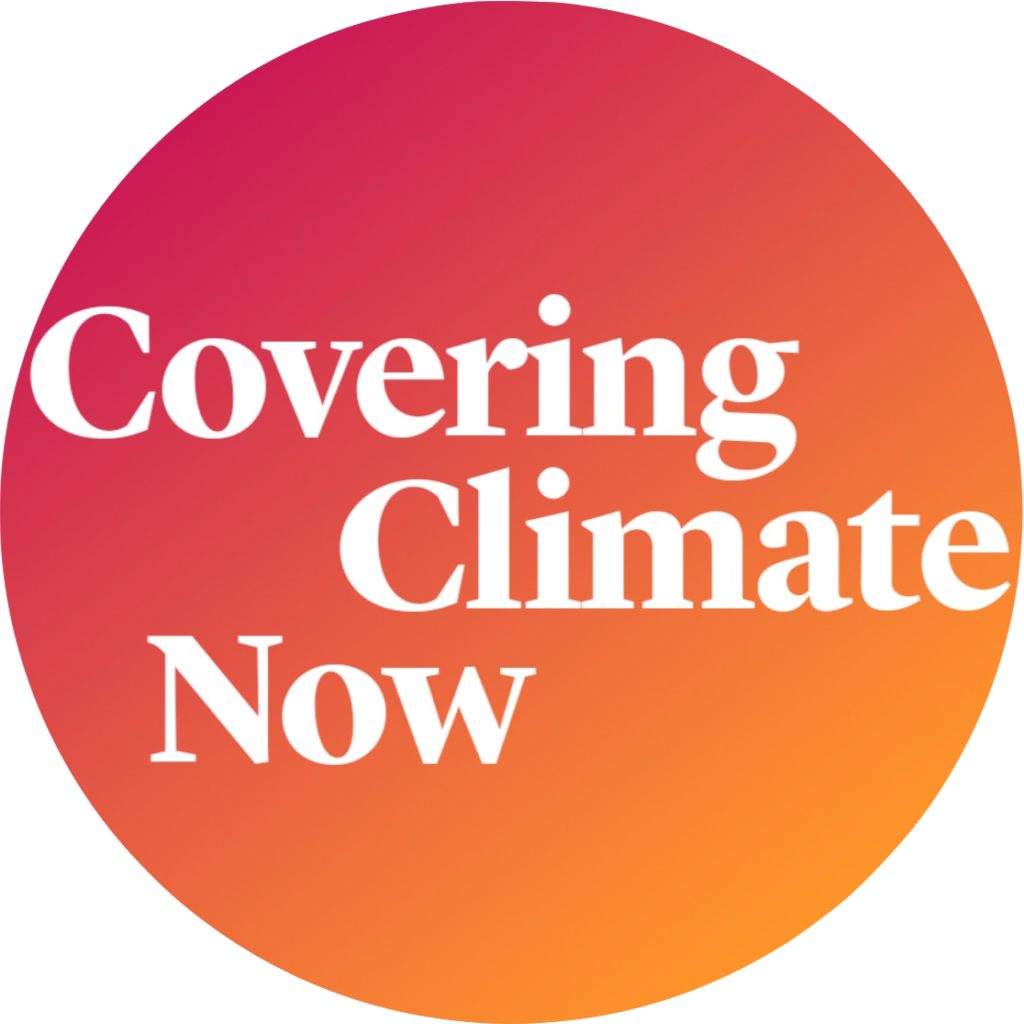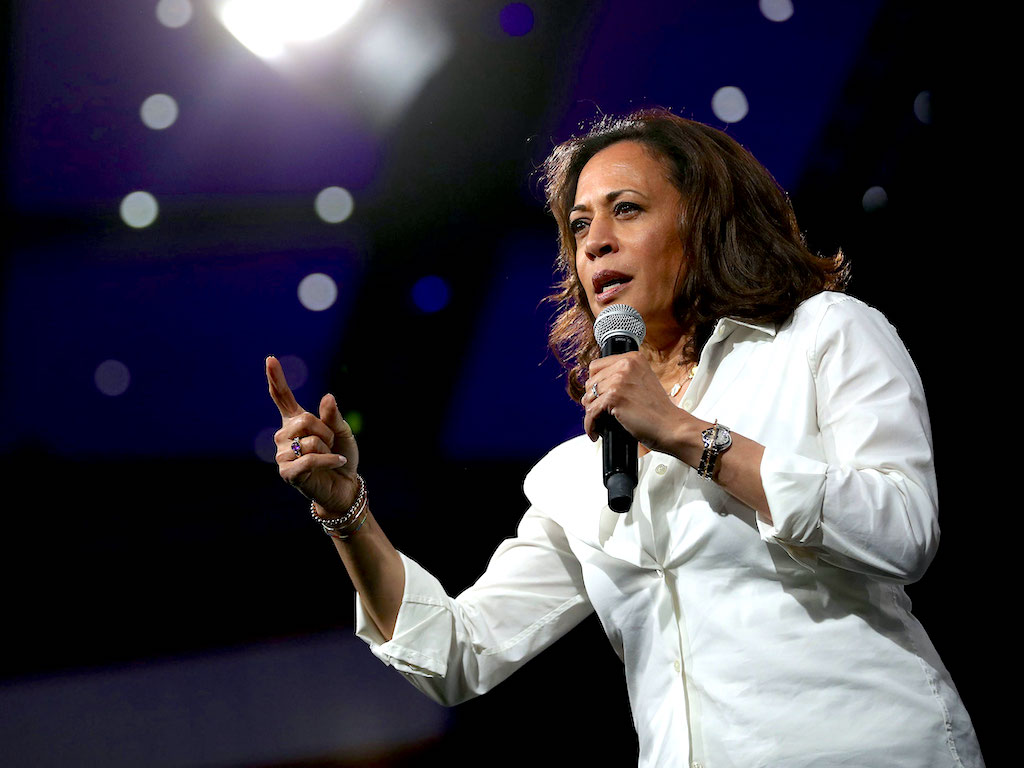5 Mins Read
By: Mark Hertsgaard
Warning of wars over water, the U.S. vice president joins activists, business leaders, and other Biden administration officials urging stronger action.
The vice president of the United States is predicting that the climate crisis will soon spark wars over water, the essential element of life on earth.
“In a short period of time, wars will be fought over water,” Kamala Harris says in a documentary the news outlet NowThis and Discovery channels released on Earth Day. Fresh water “is in diminishing supply because of the climate crisis,” Harris continues, adding that “extreme drought” is causing people to leave their ancestral lands and move to “where they can grow food.
The opening session of president Joe Biden’s Earth Day climate summit heard from one such migrant: 18-year-old Xiye Bastida, whose family moved to the U.S. from Mexico after two years of extreme drought made farming all but impossible. Bastida told world leaders to “accept that the era of fossil fuels is over” and to end all greenhouse gas emissions by 2030 — a radically more ambitious goal than Biden’s pledge to halve U.S. emissions by 2030 compared to 2005 levels.
Harris is not the first public official to warn that water shortages could ignite armed conflict, but her comment signals a new awareness in Washington of climate change’s security implications after four years of former President Donald Trump denying climate science and urging more fossil fuel production. Nevertheless, Harris and the other Biden administration officials interviewed in the NowThis documentary focus more on the economic opportunities that a transition to renewable energy offers — and the environmental injustices that today’s fossil fuel economy inflicts, especially on people of color and the poor.
Other countries that have invested in electric vehicles, battery storage, and other green technologies are “creating jobs hand over fist, good-paying jobs,” says Energy Secretary Jennifer Granholm, apparently referring to China, Germany, and other economic competitors of the U.S. “So, we just have to be fearless, I think, about investing in our nation. It is a once in a century opportunity to say, ‘We’re going to invest in the future.’”
The documentary visits a perhaps surprising location to highlight the benefits of such investments: Wyoming, a rural state that votes red and boasts the Powder River Basin, the single largest coal deposit in the United States. The coal business is in terminal decline in the US, as one former Powder River Basin miner regretfully acknowledges: “You can’t force people to buy coal.” But in southern Wyoming, wind farm manager Laine Anderson drives across a wind-swept plain as row upon row of white turbines spin above him. “There are over 1,000 turbines under my direction, over 2,240 megawatts,” Anderson says, adding that the facility is “exporting this power to Utah, Idaho, Washington, and Oregon.” The Republican mayor of Rawlins, a nearby town, says wind power “provides money, it provides jobs, it provides taxes,” adding that Rawlins will soon be home to the largest wind farm in the U.S.
The challenge is to match up these economic opportunities with the locations and skills of today’s workers and communities, says Gina McCarthy, Biden’s National Climate Adviser. The transition to a climate-friendly economy, McCarthy says, “has to include everybody: no worker or community left behind. And I think that’s a much better framing than picking yesterday’s energy and thinking that it’s going to be tomorrow’s future.”
NowThis released the documentary, “Action Planet: Meeting the Climate Challenge,” on social media with discovery+, accompanied by broadcast showings on the Discovery Channel, Science Channel, and OWN. NowThis is part of Covering Climate Now, a global consortium of hundreds of news outlets strengthening coverage of the climate story; CCNow partners have been presenting an extended week of Earth Day coverage on the theme, “Living Through The Climate Emergency.”
One measure of that emergency: continued reliance on oil, gas, and especially coal is killing millions of people around the world every year, says Aaron Bernstein, a professor at Harvard Medical School. In addition to overheating the planet, burning fossil fuels causes air pollution that leads “to early death of 330,000 Americans every year and 8 million people around the world; that’s one in five people dying because of our reliance on fossil fuels,” says Bernstein. He adds that the illnesses and deaths caused by the COVID-19 virus are “like a sneak preview of what we expect to see more of with climate change in the health care setting.”
For example, rising global temperatures encourage the spread of mosquitoes carrying other deadly diseases, such as dengue fever. “Dengue affects 96 million people every year and has been increasing exponentially on every continent except Antarctica,” says Erin Mordecai, a professor at Stanford University. “As the climate becomes more suitable for these mosquitoes, it’s going to become a much bigger and more expensive problem.”
Illustrating the truism that climate change punishes the poor and people of color most of all, the documentary features an environmental justice battle in Memphis led by Justin J. Pearson, a 27-year-old local African American activist. Pollution billows from the smokestack of one of the 17 industrial facilities looming over South Memphis, the oldest Black community in town, as Pearson explains how racist housing policies compound the problem: “You redline Black folks into a particular community where toxins are being pumped into the air. And the consequences are in the death rates, in the cancer rates, in the asthma rates of our community.”
Now, the Valero Energy Corp. wants to run an underground gas pipeline through South Memphis—and directly above the Memphis Sand Aquifer, a crucial local water source. Former Vice President Al Gore appears at a rally organized by Pearson and assures the crowd it can win this fight by remembering that “political will is a renewable resource.” On April 20, too late for the documentary, the mayor of Memphis, Jim Strickland, who is white, came out against the pipeline, calling it “a risk we should not take.”
The climate crisis, vice president Harris tells NowThis correspondent Zinhle Essamuah, “is about equal justice, it’s about equity, it’s about public health.” NowThis, which says it is the most-watched mobile news brand globally, reaches an audience inclined to activism; in 2020, 68 percent of its viewers reported that they had recently taken an “environmentally friendly action.” Essamuah’s closing commentary urged them, and everyone, to do more. “Climate change,” she said, “is the greatest collective challenge we face as a human family…. There is no alternative. Now is the time to act.”

This story is republished from Covering Climate Now, as part of our partnership with the global journalistic collaboration strengthening coverage of the climate story.
Lead image courtesy of Justin Sullivan / Getty Images.




